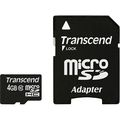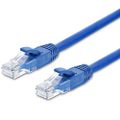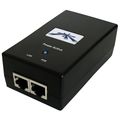Difference between revisions of "Node Setup"
(Added considerations section) |
m (Add USB to Ethernet to supplies) |
||
| Line 18: | Line 18: | ||
File:Rpf-raspberry-pi-4-model-b.png | '''[[RPF Raspberry Pi 4 Model B]]''' | File:Rpf-raspberry-pi-4-model-b.png | '''[[RPF Raspberry Pi 4 Model B]]''' | ||
File:MicroSD_card.jpg | '''microSD Card''' (4GB+) | File:MicroSD_card.jpg | '''microSD Card''' (4GB+) | ||
| − | File:Ethernet.jpg | '''Ethernet Cable''' (Three sections, cut to length) | + | File:Ethernet.jpg | '''Ethernet Cable (3x)''' (Three sections, cut to length) |
| + | File:usb_to_eth.png | '''USB to Ethernet Adapter (1+) | ||
File:Poe.jpg | '''PoE Injector''' (One should come with the UAP AC Mesh if you buy it new) | File:Poe.jpg | '''PoE Injector''' (One should come with the UAP AC Mesh if you buy it new) | ||
File:Paperclip.jpg | '''One Paperclip''' (Seriously, these come in handy) | File:Paperclip.jpg | '''One Paperclip''' (Seriously, these come in handy) | ||
Revision as of 20:15, 5 August 2020
Mass Mesh is a high-tech social club building community-owned mesh networks throughout Boston. Participating in the mesh allows you to band together with your neighbors to form a "mini-ISP," and get a better deal on your Internet.
You can join the mesh by setting up a mesh node at your home. In these instructions, we will cover how to deploy a mesh node that is privacy-enabled by default, and allows you to share an Internet connection with your neighbors. The whole setup process takes about 2 hours from start to finish. The necessary hardware is listed below, and instructions for everything from flashing the firmware to placing the mesh point are covered.
Contents
Considerations
- Time: about 2 hours
- Cost: about $150
- Internet Access: If you do not already have Internet access, you will need to find a neighbor (on your same street) who is willing to set up a mesh node at their home too, and work out a deal to share their Internet connection fairly.
- Difficulty: The instructions contained on this website are quite technical, and may be incomplete in some places. Most of these instructions were written with Linux users in mind. If you are using another operating system (like Windows or Mac,) some "googling" may be necessary to get through them. As stated above, it's good to have friends. Introduce yourself in any of our chat channels if you want some help getting started!
Materials
Standard Mesh Node
To set up a standard mesh node that broadcasts a secure Internet connection in all directions, you will need to obtain the following equipment:
Custom Mesh Nodes
If you know what kind of hardware you want, and this 'aint it, please see the recommended Hardware Bundles, or browse the full list of Devices.
Flash The Firmware
The procedure to flash the firmware varies from device to device. The devices page contains links to tutorials for each listed device.
Refer to the wiki page(s) of your chosen your device(s) to find their corresponding flashing tutorial. Or, if you prefer, bring your hardware to one of our weekly meetups, and we will be happy to flash it for you!
Configure Your Node
The pre-configured Mass Mesh firmware aims to have as much as possible done out of the box.
If you are using stock OpenWrt, see Manual Configuration for how to replicate our settings.
Install Your Node
In addition to providing power to the node, you may also want to use the following ports on your device:
- The WAN port (on multi-port devices) may be connected to a spare LAN port on your regular router (or directly to your modem) to share your internet connection with the mesh
- The LAN port may be connected to a switch or any device to provide internet to that device through the mesh
Tips For Best Results
In order to communicate on the mesh, your node must be able to talk to other nodes in your area. Here are some suggestions to help maximize your signal:
- Weather resistant nodes should be mounted on the outside of the house or to a column facing the street
- Indoor nodes should be placed on or near windows facing the street and other buildings
- Nodes will work best if they have a direct line of sight to each other
Seeking Assistance
If you need help at any point, get in touch with us online or in person.






